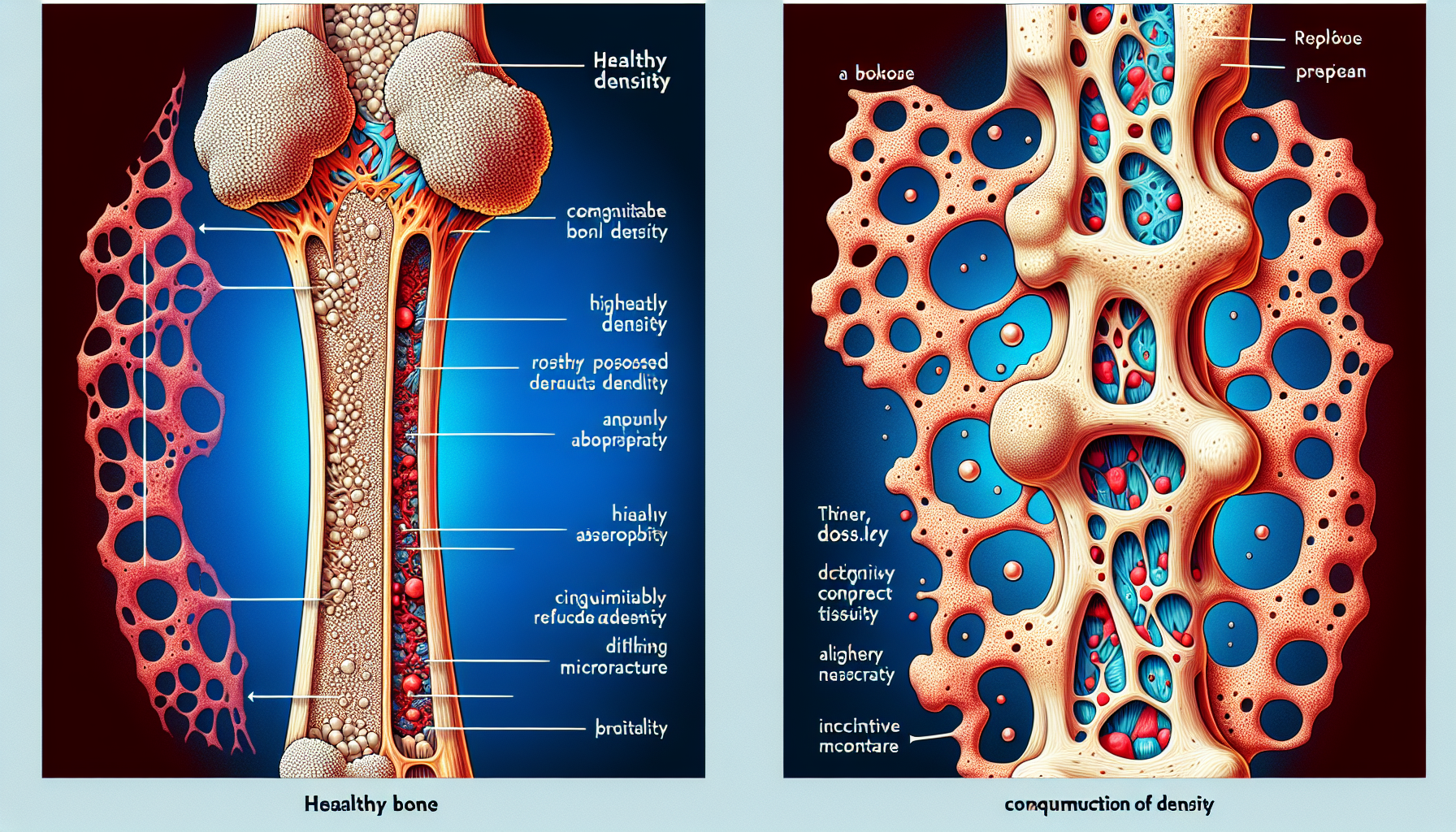Bariatric surgery has become a common solution for individuals grappling with severe obesity, offering a pathway to significant weight loss and improvements in various health conditions. While the benefits of such procedures are well-documented, it’s crucial to understand the full spectrum of long-term outcomes, particularly concerning bone health. This article delves into the intricate relationship between bariatric surgery and bone density, providing valuable insights for patients and healthcare professionals alike.
Understanding Bone Density and Its Importance
Bone density refers to the amount of mineral matter per square centimeter of bones. It is a crucial indicator of bone strength and an important factor in preventing osteoporosis, a condition that leads to fragile and easily breakable bones. Maintaining healthy bone density is essential for overall skeletal strength and can help prevent injuries, especially in older adults. For comprehensive information on bone health and its upkeep, refer to Avix Health’s detailed guide on Bone Health.
The Link Between Bariatric Surgery and Bone Health
Bariatric surgery, also known as weight loss surgery, includes various procedures that alter the digestive system to help lose weight. These surgeries can lead to rapid weight loss, which may affect bone density. The mechanisms behind this include changes in hormone levels, nutrient absorption, and alterations in body composition, all of which can influence bone remodeling—a process where old bone tissue is replaced by new tissue.
Nutritional Deficiencies
One of the primary concerns post-surgery is the potential for nutritional deficiencies. Procedures that reduce the size of the stomach or bypass parts of the intestine can lead to decreased absorption of calcium and vitamin D, two critical nutrients for bone health. To delve deeper into how certain nutrients affect bone density, browse through the insights on Evaluating the Impact of Marine Nutrients on Bone Health.
Hormonal Changes
Bariatric surgery can also result in hormonal changes that impact bone density. For example, the surgery can lead to a decrease in leptin, a hormone that may play a role in bone formation. Additionally, changes in sex hormones such as estrogen and testosterone, which are protective of bone mass, can also contribute to bone density loss.
Mechanical Unloading
The significant weight loss following bariatric surgery reduces the mechanical load on the skeleton. Bones, similar to muscles, require mechanical stress to maintain strength. The reduction in mechanical loading post-surgery may lead to a decrease in bone density as the body adjusts to a lower weight.
Monitoring and Managing Bone Density After Bariatric Surgery
It’s imperative for patients who have undergone bariatric surgery to monitor their bone health. This often includes regular bone density scans, such as dual-energy X-ray absorptiometry (DXA), to detect changes early on. Management strategies focus on diet and lifestyle changes, including:
- Nutritional Supplementation: Ensuring adequate intake of calcium and vitamin D through diet or supplements is crucial. Patients may also require other nutrients such as magnesium, vitamin K, and phosphorus.
- Physical Activity: Weight-bearing and muscle-strengthening exercises can help stimulate bone formation and improve bone density.
- Lifestyle Modifications: Avoiding smoking and excessive alcohol intake, which can contribute to bone loss, is recommended.
For individuals with food allergies who may face additional challenges in managing bone health post-surgery, Bone Health Considerations for People with Food Allergies provides tailored advice.
Long-Term Outcomes and Risks
Long-term studies indicate that bone density typically decreases within the first year after bariatric surgery and may continue to decline for several years. This increased risk of bone loss can lead to a higher incidence of fractures in bariatric surgery patients compared to the general population.
Research and External Resources
Current research is investigating various interventions to mitigate bone density loss in post-bariatric surgery patients. Here is an insightful study from the American Society for Metabolic and Bariatric Surgery that discusses the risks and recommendations for bone health management in these patients.
Furthermore, the National Institutes of Health (NIH) provides a comprehensive resource on bone health, including information on bone density and osteoporosis, which can be particularly beneficial for post-bariatric patients.
Conclusion
The decision to undergo bariatric surgery should always be made with careful consideration of the potential risks and long-term effects, including the impact on bone density. It’s essential for healthcare providers to educate patients on the importance of bone health and the potential need for lifelong monitoring and intervention.
For more specialized information on bone density and health, patients and providers can also explore resources like the International Osteoporosis Foundation and the National Osteoporosis Foundation, which offer guidelines and research on maintaining bone health.
In summary, while bariatric surgery offers many benefits, it is imperative to remain vigilant about bone health. With proper care, monitoring, and lifestyle adjustments, it is possible to manage and mitigate the risks to bone density and maintain a healthy and active life post-surgery.



